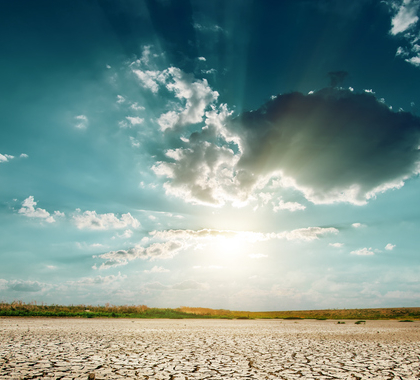A whistleblower at the National Oceanic and Atmospheric Administration (NOAA) reported leading NOAA climate scientist Tom Karl violated the agency’s rules by rushing to publish untested and unconfirmed data.
According to the whistleblower, the publication of the data was rushed to influence the outcome of the 2015 Paris climate negotiations.
In a second breach of agency protocol, Karl and his coauthors failed to archive and store their datasets properly for testing and public disclosure. As a result, some of the original datasets were lost when the computer used to process the data failed.
John Bates, the scientist responsible for establishing and maintaining NOAA’s data-testing and archiving process, disclosed the breach of agency rules in a February 4 article on the Climate Etc. website. Bates won the U.S. Department of Commerce Gold Medal in 2014 for his “visionary work in the acquisition, production, and preservation of climate data records, which accurately describe the Earth’s changing environment.”
In June 2015, the journal Science published a paper by Karl and others titled “Possible Artifacts of Data Biases in the Recent Global Surface Warming Hiatus,” which purported to show, contrary to every temperature dataset available at the time, Earth had not experienced an 18-year pause in rising temperatures but rather temperatures had continued to rise at an alarming rate. The paper was published just before the Obama administration issued its commitment to cut carbon-dioxide emissions in advance of the Paris Climate Conference.
Prior to Science publishing Karl’s paper, NOAA had adopted a comprehensive process, including new verification software, for reviewing climate datasets and ensuring they were archived for sharing, replication, and testing. In defiance of agency rules, Karl did not run his team’s dataset through the agency’s software and did not archive key datasets to justify the paper’s claim there had been no pause in rising global temperatures.
‘Thumb on the Scale’
According to Bates, Karl’s team consistently exaggerated measured warming and minimized data documentation to produce the results they wanted.
“So in every aspect of the preparation and release of the datasets leading into [Karl’s paper], we find Tom Karl … pushing for, and often insisting on, decisions that maximize warming and minimize documentation,” wrote Bates in the Climate, Etc. article. “Gradually, in the months after [Karl’s paper] came out, evidence kept mounting that Tom Karl constantly had his ‘thumb on the scale’—in the documentation, scientific choices, and release of datasets—in an effort to discredit the notion of a global warming hiatus and rush to time the publication of the paper to influence national and international deliberations on climate policy.”
Stonewalling Congress
Because Karl’s pause-busting conclusions were at odds with existing temperature datasets which confirmed a nearly two-decade pause in rising temperatures, the U.S. House of Representatives Committee on Science, Space, and Technology, which oversees federally funded research, requested NOAA turn over for review all documentation, assumptions, datasets, methodologies, and e-mail exchanges for the Science paper. After NOAA refused to comply fully with the request, the Science Committee subpoenaed NOAA’s documentation.
NOAA still refuses to turn over all the materials, citing its concerns about confidentiality and the integrity of the scientific process.
Arthur Viterito, a professor of geography at the College of Southern Maryland, says NOAA’s refusal to turn over the information is inexcusable and indicates Karl has something to hide.
“With regard to Karl’s refusal to comply with the congressional subpoena, I am, in a word, appalled,” said Viterito. “The taxpayers of this country have paid for this information, and any call by Congress to account for what has been done with that data requires a response.
“If they had nothing to hide, then there would be no need to withhold information,” Viterito said. “In my opinion, this is an instance where scientists, acting as political advocates, produced bad science in an effort to influence questionable government policies.”
In light of Bates’ disclosures of Karl and his coauthors’ breach of agency protocols, on February 14, the House Science Committee announced it was reopening its investigation into the 2015 paper.
Unsurprised by Data Concealment
Willie Soon, a geo-scientist at the Harvard-Smithsonian Center for Astrophysics, says he shares the public’s concern about Karl’s failure to handle his data properly, though he was not surprised by the disclosure.
“I can easily sympathize with the popular sentiment concerning the violation of data-archiving rules imposed by NOAA,” Soon said. “After all, making data available for all is the number-one acid test of science. What I cannot fathom is why Bates’ disclosure should surprise anyone.
“Many scientists pointed out Karl’s team had obviously manipulated the data to get their results, as soon as the advance online preprint of the Science paper was released,” Soon said. “Karl’s research still fails to match several accurately measured empirical datasets of tropospheric temperature.”
David Legates, a professor of climatology at the University of Delaware, says Bates should have spoken up sooner.
“Why do scientists wait until their careers are finished to blow the whistle?” said Legates. “When scientists know all along their peers are breaking the rules and do nothing about it, they are guilty of being an accessory to the wrongdoing.
“[Bates] stood idly by while other scientists were persecuted, while legislation was signed that hurt the poor, and while money was wasted on a fraud,” Legates said. “Where were your ethics when it mattered?”
H. Sterling Burnett, Ph.D. ([email protected]) is a research fellow at The Heartland Institute.





